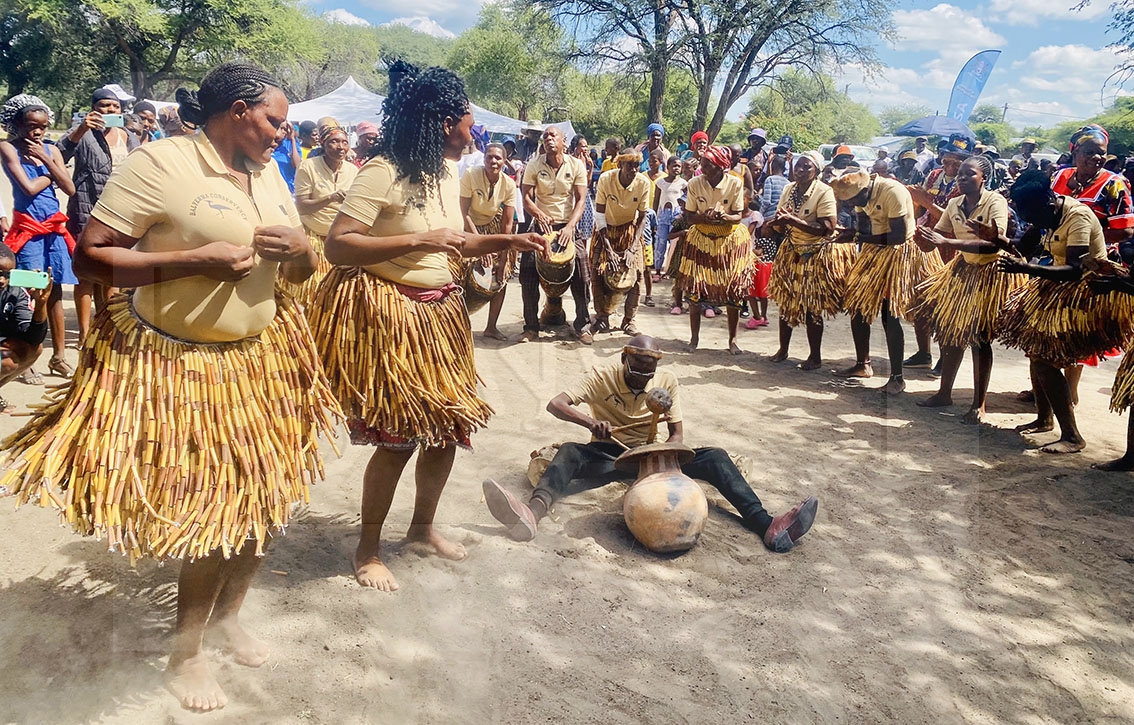Document Culture official
18 Jul 2022
Baherero have a rich history and culture that sets them apart from other tribes, which they need to share with young people to enable them to document and preserve it for future generations, says Ministry of Youth, Gender, Sport and Culture’s principal youth officer, Refilwe Banda.
According to Banda, the tribe has shown commitment of upholding their cultural values as evidenced by among others things; women’s dress code of wearing long dresses and horned-shaped head scarf, which symbolised the importance of cattle, which is part of their cultural identity.
She was officiating during the Otjiserandu cultural commemoration held in Tsau.
She called on the elderly to take full responsibility of educating young people about their culture so that they could pass it onto the coming generation.
She said the Otjiserandu event, commemorated every year during the National Arts Festival celebrations, brought together Herero people across the country and Namibia to honour their fallen heroes and showcase their unique culture.
The event, she said gave them an opportunity to trace their roots as well as celebrate the contribution made by their forefathers during difficult times.
History has indicated that genocide forced the Baherero out of their homelands in Namibia to relocate to Botswana in 1904 under the leadership of Kgosi Samuel Maharero.
Banda encouraged organisers to engage Department of Youth to make the event big and more colourful.
“This event is unique and needed to be developed further to make it more attractive not only to Baherero but to the Ngamiland community and the nation at large,” said Banda.
She also appealed to all associations in Ngamiland District that organised cultural events to register with Department of Youth office and see how best they could work together to promote culture as that was part of their mandate.
Former chief of Tsau, Kgosi Ebineng Potsoeng concurred with Banda that the Herero people had a rich culture that needed to be preserved adding that the event was also of great historical significance to them.
Tsau, he said held a significant part of the Herero history as some of their war veterans were buried in the village citing the late Kgosi Samuel Maharero and his mother.
He emphasised the need to pass the history to the new generations to ensure that they understood their roots.
However, Kgosi Potsoeng decried low attendance noting that when the event started, it used to attract multitudes of Herero people from all corners of the country.
Since the German government agreed to compensate Baherero for the loss caused by the genocide, he said they were slowly destroying the spirit of togetherness and urged them to stay united and attached to their culture.
He showed concern over the declining culture because many fancied foreign culture over theirs and advised them to use the event as a platform to redefine themselves and see what could be the cause of a decline in cultural values.
Baherero paramount chief from Namibia, Kgosi Tjinaani Maharero appraised the gathering on the history of Baherero and how they ended up finding refugee in Botswana.
An earlier group of Herero, he said had migrated to Ngamiland in 1896.
Furthermore, he noted that the 1904 genocide of Herero people had left an indelible legacy which needed to be maintained adding that their forefathers had made a lasting mark in Botswana hence the birth of Otjiserandu event.
The Otjiserandu cultural movement, he said began after the death of Baherero chief, Samuel Maharero and thereafter continued from generation to generation.
In Namibia, the event is celebrated on August 26 every year and he thanked Botswana government for supporting the event locally adding that next year, they would be commemorating its 100 years anniversary.
He urged both Herero in Botswana and Namibia to stay united as they were one people practising same culture adding that ‘we should remain united just the way our forefathers were united.’
Meanwhile, the event was characterized by song, dance, food and the flamboyant attire of both Herero men and women. BOPA
Source : BOPA
Author : Esther Mmolai
Location : TSAU
Event : Cultural commemoration
Date : 18 Jul 2022






